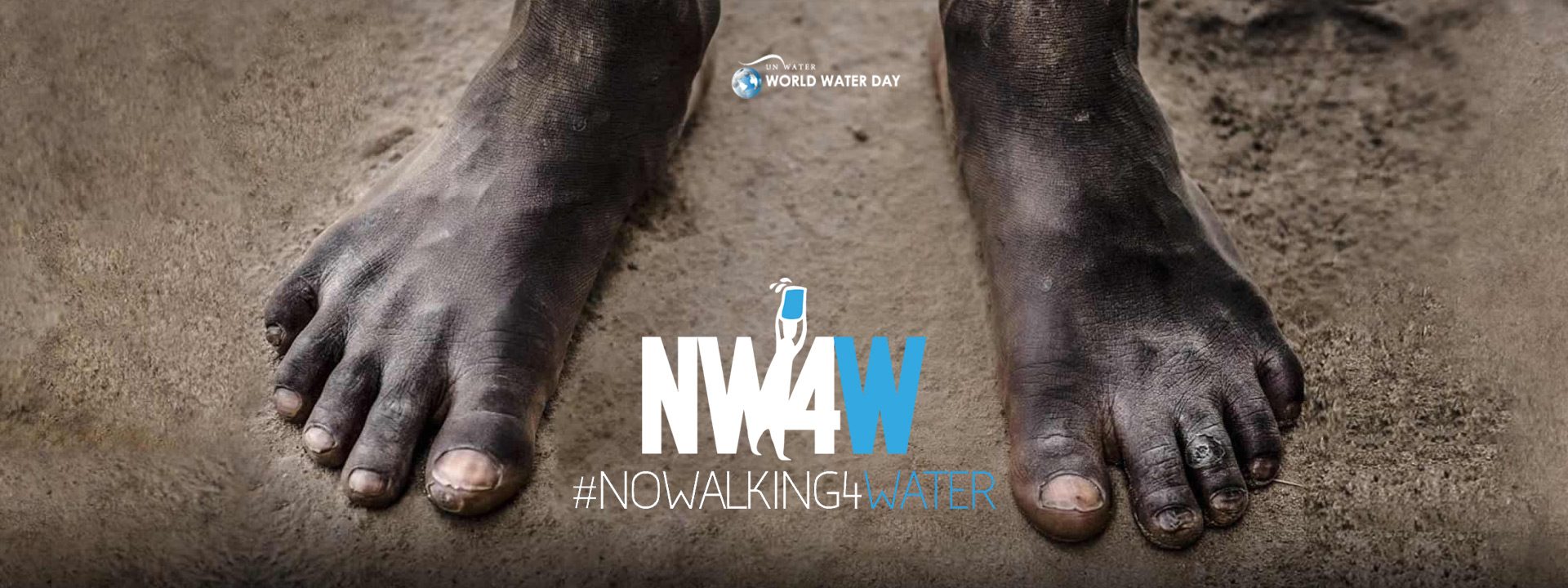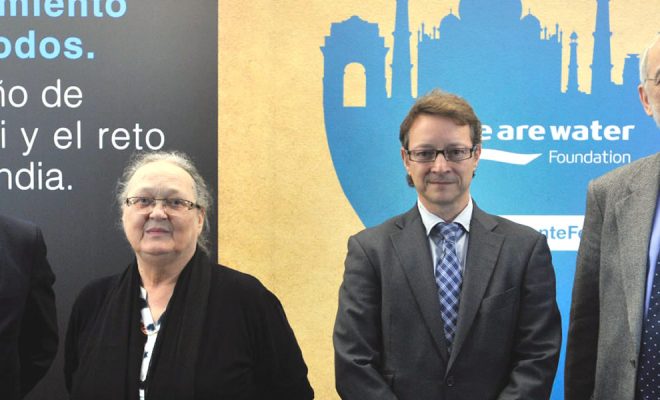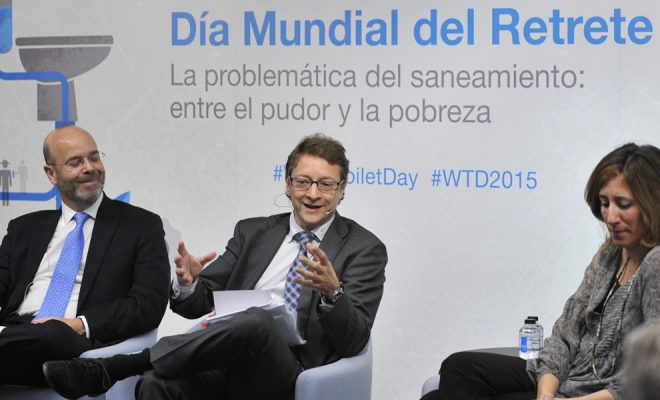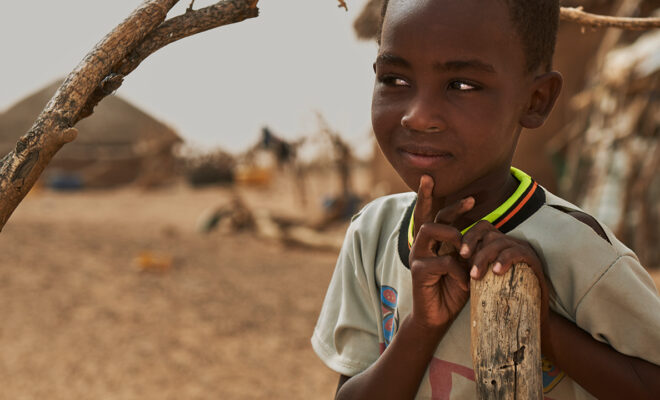- The campaign of the We Are Water Foundation denounces an injustice that affects millions of women and children who need to walk daily to collect water.
- The lack of access to water affects deeply the social balance and the options of autonomy and education of African women.
- The sanitation problems worsen inevitably the situation of the affected communities.
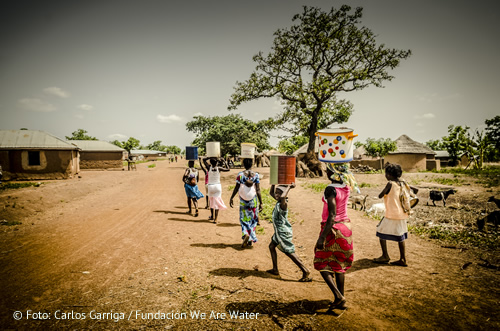
¿Nos imaginamos cómo serían nuestras vidas si tuviésemos que andar varios kilómetros cada día para conseguir el agua necesaria para vivir? Según datos de ONU Mujeres, en un solo día, en 25 países del África subsahariana, las mujeres y los niños, que son los encargados de conseguir el agua, pasan 16 millones de horas recogiéndola para llevarla a sus viviendas; y se calcula que en todo el continente el tiempo empleado en este menester sobrepasa los 40.000 millones de horas al año.
Si esto ocurriese en España, por ejemplo, el país se paralizaría y entraría en bancarrota, pues la cifra sobrepasa en 2.600 millones las horas de trabajo de toda la población activa en 2015 (37.400 millones de horas).
Pero en África, el problema va más allá de la economía y es mucho más hiriente. En zonas donde el 40 % de los hogares están a más de media hora del suministro de agua, estas cifras significan viajes de una media de 6 kilómetros diarios que la mayoría de las mujeres y niños pasan acarreando recipientes que pueden llegar a pesar hasta 20 kilos, bajo un sol abrasador y expuestos a múltiples peligros por su alta vulnerabilidad.
Los perjuicios son también sociales. La obligación de ir a por agua impide a las mujeres adultas participar en actividades productivas o en la educación, reproduciendo y agravando así las desigualdades de género existentes e impidiendo desarrollar el papel estructurador de la familia y la comunidad que tradicionalmente tenían en las zonas afectadas.
Por otra parte, las niñas y niños empleados en el transporte de agua dejan de ir a la escuela, por lo que se crea un círculo vicioso que lleva a un empobrecimiento social sin posibilidades de desarrollo.
La falta de saneamiento, un factor agravante
La falta de acceso al agua va generalmente acompañado de la falta de un saneamiento adecuado. Este factor afecta a la higiene de la población y de forma muy especial a las mujeres y la infancia, tal como señalaba Blanca Carazo, responsable de Cooperación al Desarrollo de UNICEF España, en la mesa redonda organizada por la Fundación We Are Water Fórmulas para hacer realidad la cooperación en materia de agua: “Si las mujeres tienen que salir a defecar fuera de la casa, lo hacen de noche para preservar su dignidad, lo que supone para ellas el peligro de ser atacadas y violadas. Por otra parte, también hay muchas niñas que cuando les llega la menstruación dejan de ir a clase por falta de privacidad en los servicios”.
Un objetivo inaplazable
Hace ya décadas que la comunidad internacional se ha hecho consciente de la estrecha relación existente entre los derechos de la mujer y la infancia, y el acceso al agua y al saneamiento. La segunda jornada del Día Mundial del agua, que se celebró el 22 de marzo de 1995, tuvo por lema Mujer y agua. la campaña de concienciación lanzada por las Naciones Unidas desveló lo que era una realidad desconocida para muchos. Ahora, en los los Objetivos de Desarrollo Sostenible, el agua adquiere un protagonismo especial. El objetivo 6 especifica: Garantizar la disponibilidad de agua y su gestión sostenible, y el saneamiento para todas y todos. Si esto lo logramos, nadie tendrá que andar más a por agua. Éste es, sin duda, un objetivo prioritario de la humanidad, un derecho de las mujeres, los niños y, en consecuencia, de todos nosotros.
#NoWalking4Water, un objetivo prioritario de la humanidad, una acción de todos
Con el objetivo de denunciar esta injusticia, la Fundación We Are Water organiza una acción de concienciación bajo el lema #NoWalking4Water.
Esta campaña, celebrada en el marco del Día Mundial del Agua del próximo 22 de marzo, es un llamamiento a todos los ciudadanos así como a personas relevantes de diferentes ámbitos, como el deporte, la comunicación, la música o el cine. Y quiere hacer visible el problema, a través de la imagen de un bidón de 20 litros como el que usan esos millones de personas.
¿Cómo colaborar?
Todas aquellas personas que quieran participar pueden entrar en la web creada por la Fundación nowalking4water.org, descargarse la imagen del bidón y hacerse una foto con él para compartirlo en las redes sociales junto al hashtag #NoWalking4Water. Cuantas más fotos, más visible se hará el mensaje. Además, entre los días 14 y 23 de marzo puedes acercarte a los diferentes puntos de Barcelona y Madrid donde se encuentra el mural de la Fundación We Are Water, hacerte la foto y colgarla en tus redes sociales también. Este año se instalan en:
Roca Barcelona Gallery – C. Joan Güell, 212
Día: 14 a 23 de marzo
Horario: de 10:00h a 20:00h / Sábado hasta las 14:00h y domingo cerrado.
Maremágnum (vestíbulo principal), Barcelona – Port Vell
Día: 19 al 22 de marzo
Horario: 10:00h a 22:00h
Roca Madrid Gallery – C. José Abascal, 57
Día: 14 a 23 de marzo
Horario: 10:00h a 20:00h / Domingo cerrado.
Madrid Xanadú – Autovía A-5, Km. 22, Arroyomolino
Día: 19 a 22 de marzo
Horario: 10:00 a 22:00h
SOBRE LA FUNDACIÓN WE ARE WATER
La Fundación We Are Water, impulsada por la empresa Roca, tiene como objetivos, por un lado, sensibilizar a la población en general y a las administraciones sobre la necesidad de fomentar una nueva cultura del agua en el mundo y, por otro, paliar los efectos negativos relacionados con la falta de recursos hídricos, mediante el desarrollo de proyectos de cooperación y ayuda junto a diversas organizaciones como Educación Sin Fronteras, Fundación Vicente Ferrer, Intermón Oxfam y Unicef.


